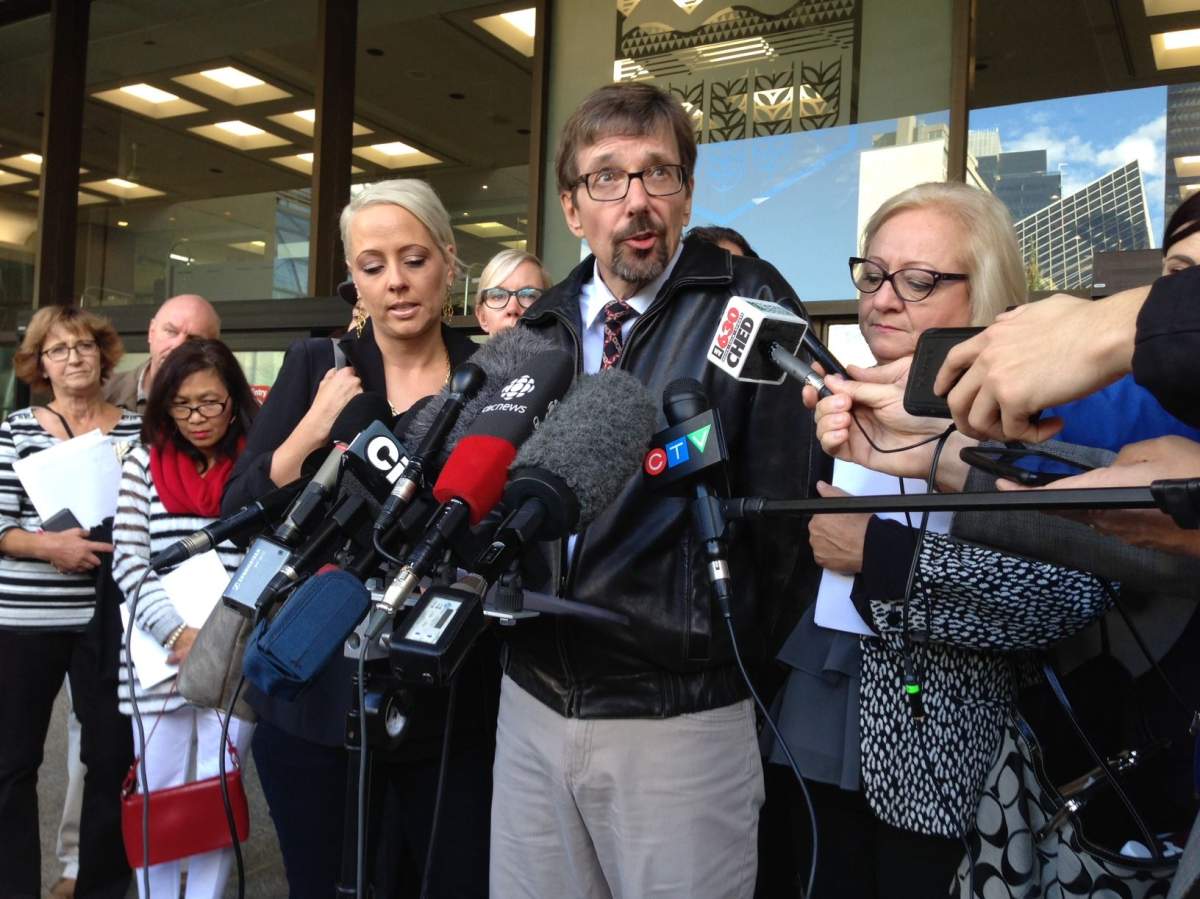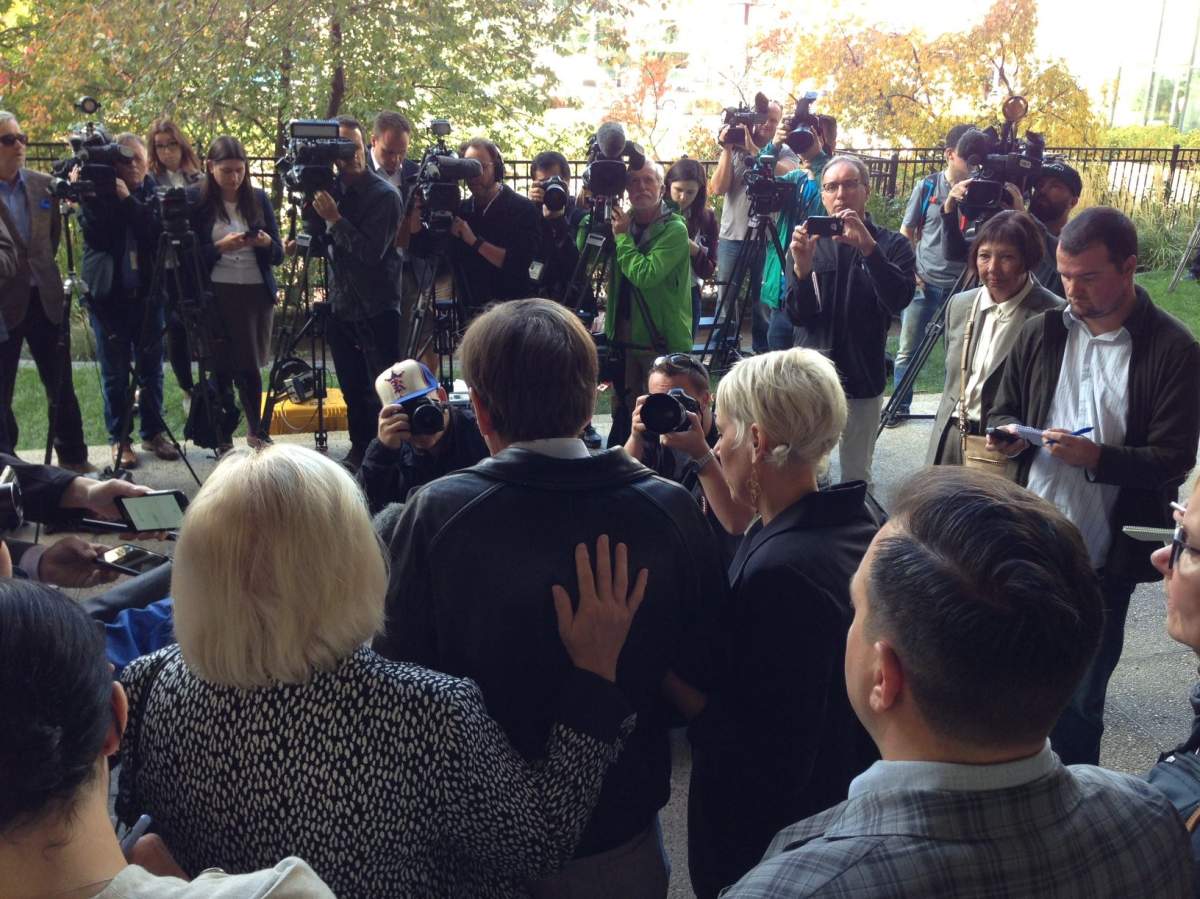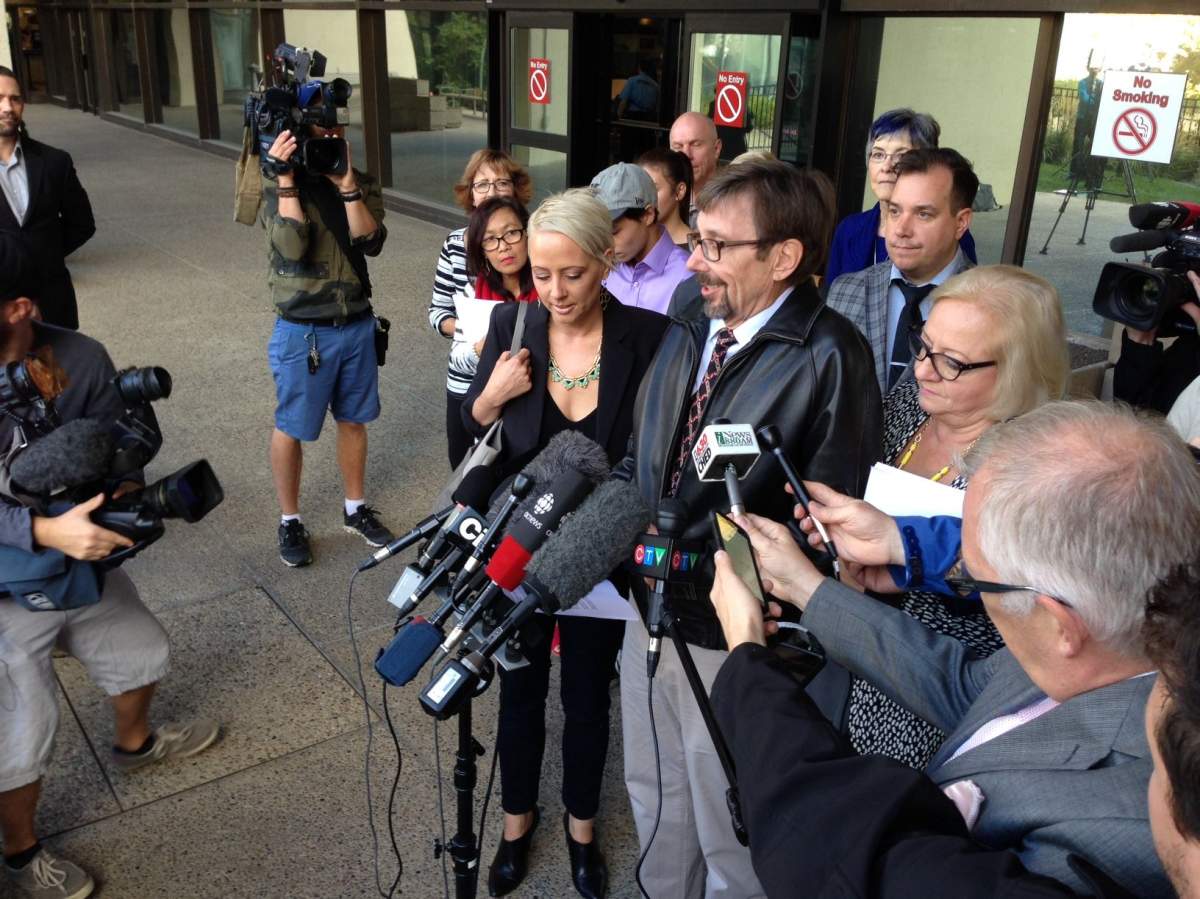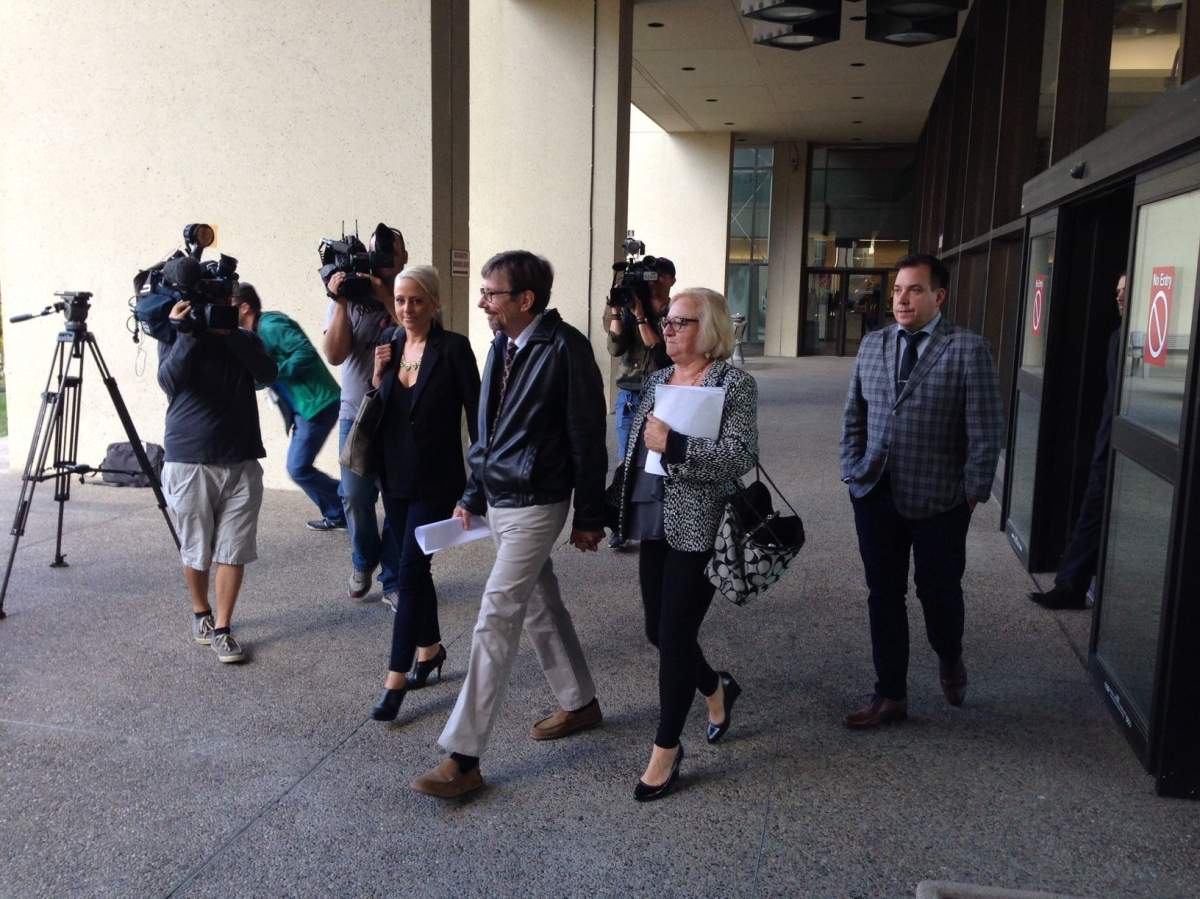At least one legal scholar says a judicial oversight may invalidate the verdict that found an Alberta man guilty of second-degree murder.

Travis Vader was convicted Thursday of second-degree murder in the 2010 deaths of seniors Lyle and Marie McCann. It’s a case that has bedevilled police, haunted the victim’s family and fascinated the public since the McCann’s burned-out RV was found in 2010.
Watch below: Travis Vader full verdict delivered on-camera in historic case
But Peter Sankoff, a University of Alberta law professor who specializes in legal issues around the criminal trial process, said Thursday that Alberta Queen’s Bench Justice Denny Thomas used an invalid section of the Criminal Code in his decision.
Sankoff points out that Thomas used Section 230 of the Criminal Code in his written judgment convicting Vader. Thomas refers explicitly to that section in finding Vader guilty of second-degree murder.
READ MORE: The case against Alberta murder suspect Travis Vader
“When (Thomas) relies on Section 230 to convict, he can’t do that. Section 230 doesn’t exist.”
That section allows for a murder verdict if a wrongful death occurs during the commission of another crime, such as robbery.

Get daily National news
However, Section 230 was found unconstitutional in 1990 by the Supreme Court.
The revised definition of murder states the killing must be intended to be murder, which the Crown was unable to prove against Vader.
“The Supreme Court’s been very clear,” said Sankoff.
“You must have an intention to cause death to be guilty of murder. There’s no finding that Vader ever intended to cause death.”
Thomas allowed a camera into his court for the verdict, a first for Alberta. Livestream broadcasts of his judgment allowed Sankoff and other legal experts to monitor the argument in real time.
READ MORE: Why televising the Travis Vader verdict could lead to more cameras in courts
Although Section 230 has not been in force for 26 years, it’s never been repealed and still remains in the Criminal Code. Sankoff suggests Thomas simply erred.
“It’s very easy to get things wrong, because, you know, you forget. (The section) is sitting there.”
Sankoff said the error leaves the verdict wide open to appeal — something Vader’s lawyer has already said he intends to do.
“If they bring an appeal on this, I think it’s slam dunk.”
Watch below: Travis Vader’s attorney was surprised and disappointed by the guilty verdict in the case. He said they will appeal the verdict.

Vader could still be convicted of manslaughter.
The situation exemplifies a problem legal scholars often identify to politicians, Sankoff said. Old, antiquated laws are rarely repealed and sit there on the books.
“There are anywhere from 30 to 50 crimes that, if you open up the Criminal Code, are still there. Parliament never gets around to repealing those, even though we ask them to,” Sankoff said.
Section 230 has been wrongly used in trials before, but only in instructions to a jury. He said he’s not aware of it being used before in a judgement.
What happens next is unclear.
The Alberta Court of Appeal could sort out the matter. Sankoff said there’s also a provision where the Crown and defence lawyers could ask the judge to reconsider his verdict, a highly technical legal process that could take months.













Comments
Want to discuss? Please read our Commenting Policy first.